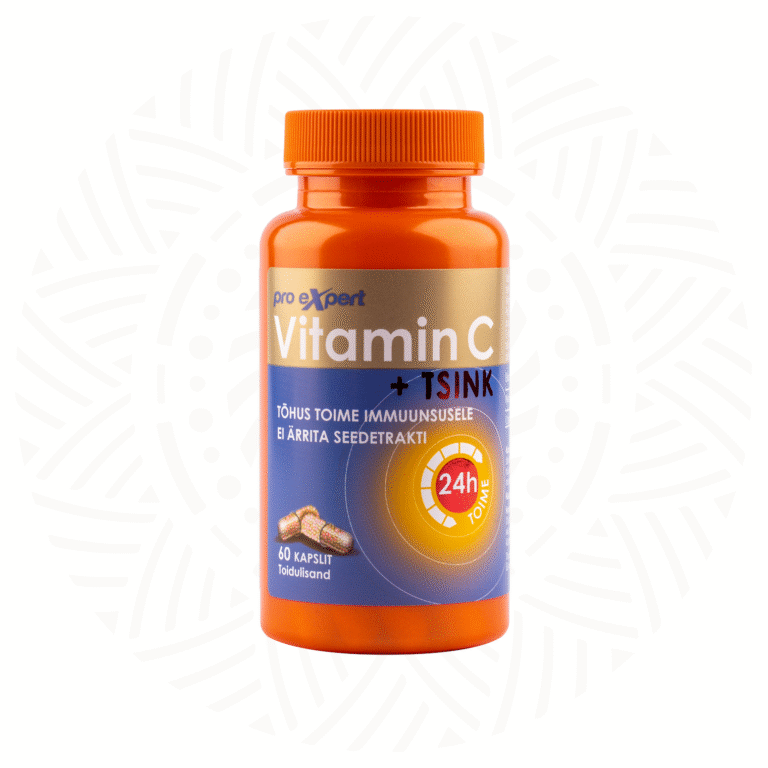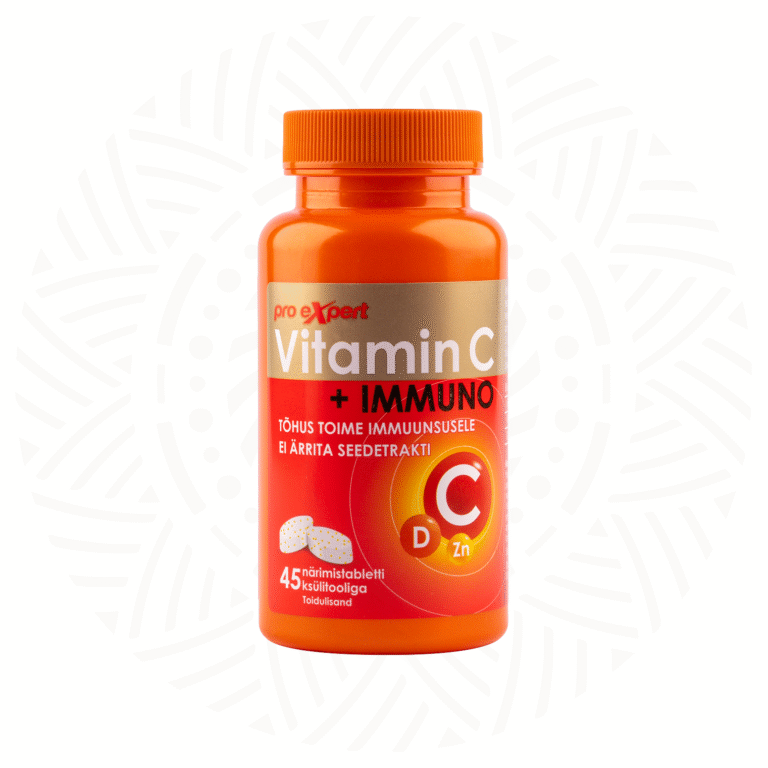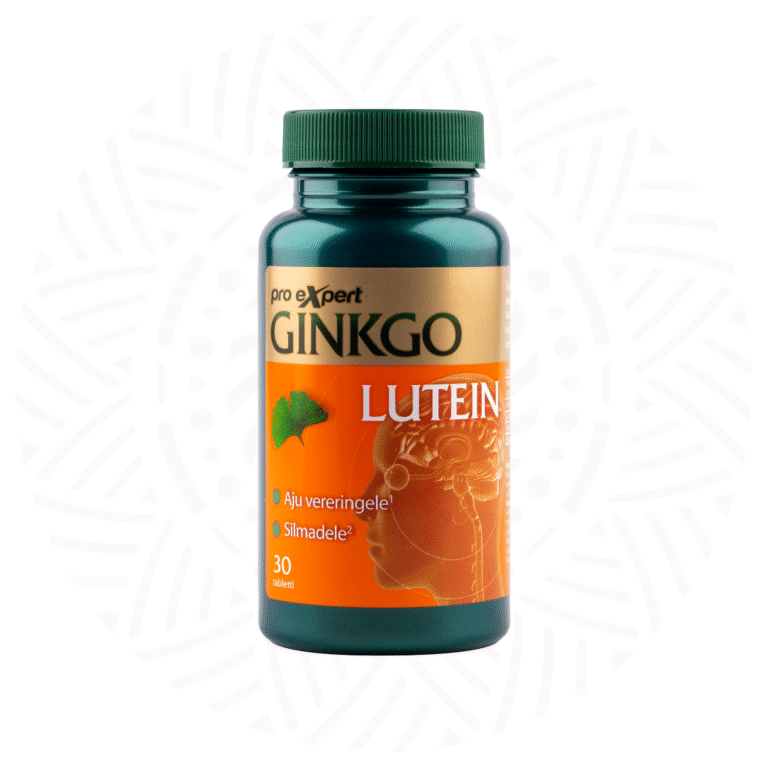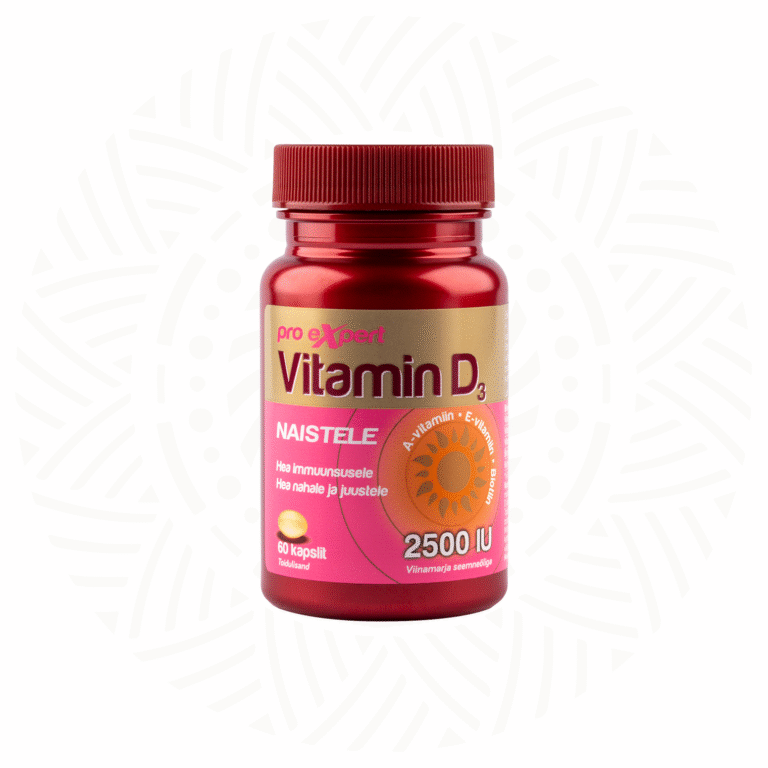Healthy eyes are like a secret weapon for quality of life, one that is hard to overestimate. Therefore, in a time when we spend hours in front of screens, we must take our eye health seriously. Below, we provide a comprehensive overview of when and how to take eye vitamins to maintain eye health and ensure good vision in old age.
Who Needs Eye Vitamins?
It is true that vitamins and minerals are essential for eye health, but getting them from food is not as simple as just eating carrots. To maintain eye health, it is important to consume a well-balanced diet daily that includes fruits, vegetables, fish, and nuts.
Eye vitamins are specialized supplements that contain essential nutrients for the eyes. They consist of various vitamins, minerals, and antioxidants that help protect the eyes from damage, improve vision, and reduce the risk of eye diseases.
Eye vitamins can be taken at any age, but they are particularly beneficial for people who:
- work daily on a computer
- feel that their eyes get tired quickly
- suffer from dry eye syndrome
- drive long distances
- want to support their eye health
- wish to prevent eye diseases, such as cataracts, glaucoma, and macular degeneration.
What Do Eyes Need?
The well-known saying “you are what you eat” also applies to the eyes. Eyes are among the most complex organs after the brain and require various vitamins, minerals, and antioxidants for optimal function. Each vitamin, mineral, and antioxidant in an eye supplement plays a specific role, working in synergy to ensure good eye health. The best eye vitamins contain:
Lutein and Zeaxanthin
Lutein and zeaxanthin are carotenoids that help protect the eyes from the harmful effects of UV radiation and blue light emitted by screens. Lutein and zeaxanthin act as natural sunglasses, absorbing harmful UV rays and blue light while protecting the eyes from free radical damage. Therefore, a good eye vitamin should always contain lutein and zeaxanthin. Lutein and zeaxanthin are found abundantly in dark green and yellow vegetables.
Vitamin A
Vitamin A is essential for vision. It helps the retina produce light-sensitive proteins that are necessary for night vision and the prevention of night blindness. Vitamin A has protective and moisturizing properties for the cornea, helping to prevent and alleviate dry eye syndrome. Vitamin A is found in liver, eggs, fish, as well as carrots, pumpkins, and bell peppers.
Vitamin E
Vitamin E is a powerful antioxidant that slows down cell aging and strengthens the walls of the eye’s capillaries. Vitamin E is found in many foods, such as nuts, seeds, olive oil, and whole grains.
Vitamin C
Vitamin C is a powerful antioxidant that helps protect the eyes from free radical damage. Vitamin C aids in collagen production, which is essential for eye health. Vitamin C is found in fruits and vegetables.
Zinc
Zinc is the most concentrated mineral in the eye, supporting the retina and blood vessel health. Zinc helps vitamin A absorb, thereby aiding in the production of melanin, which protects the eye from UV radiation. Zinc protects the eyes from inflammation and supports the function of the eye’s mucous membranes. Zinc is found in seafood, nuts, seeds, and whole grains.
Bilberries
Bilberries are a true superfood, packed with beneficial nutrients. They improve vision in low light and darkness, reduce the risk of eye diseases, and enhance tear quality, thereby reducing eye dryness and redness.
Omega-3 Fatty Acids
Omega-3 fatty acids are essential for eye health and well-being, especially DHA (docosahexaenoic acid). DHA is a primary structural component of the retina and is necessary for maintaining vision throughout life. Omega-3 fatty acids help protect the eyes from inflammation and keep the eye’s mucous membranes hydrated. Omega-3 fatty acids are found in fish, nuts, and seeds.
Ginkgo Biloba
Ginkgo biloba, also known as the maidenhair tree, promotes blood circulation in small blood vessels, including those in the eyes. By improving circulation, it supports good vision and reduces eye fatigue. Ginkgo biloba in eye supplements promotes tear production and enhances tear quality, helping to relieve dry eyes and irritation.
When Do Eyes Need Extra Support?
Eye vitamins are not just for alleviating age-related vision impairments. They are beneficial for people of all ages who experience daily eye strain. Prolonged screen time, intense use of computers and smart devices, harmful UV radiation, and long-distance driving can cause eye fatigue, dryness, and other issues.
Our eyes are our most important sensory organs, allowing us to see the world around us. To keep them healthy and protect them from damage, it is crucial to recognize when they need extra support.
Sunlight Exposure
Eyes need protection from the sun, regardless of the season. Excessive sun exposure damages the eyes and can lead to various eye diseases, including:
- Photokeratitis – corneal inflammation causing pain, redness, and tearing.
- Macular degeneration – retinal damage that results in loss of visual acuity.
- Cataracts – clouding of the lens that causes blurry vision.
If your eyes are sensitive to sunlight, in addition to wearing sunglasses, you should also consider taking eye vitamins. Eye vitamins containing lutein and zeaxanthin act as natural sunglasses, helping to protect the eyes from harmful UV radiation.
Screen Exposure
Nowadays, screen time has become almost unavoidable. We use screens at work, school, during leisure time, and even at home. This lifestyle is leading to increased eye fatigue and dryness, especially among younger people.
Prolonged screen exposure reduces natural blinking. Blinking helps keep the eyes moist. When we do not blink as often as needed, our eyes do not get enough moisture and become dry.
Additionally, screens emit blue light, which gradually damages the eyes. This leads to eye fatigue, redness, and other issues.
If you notice that prolonged screen use causes dry, irritated, red, or tired eyes, eye vitamins may be beneficial. Lutein, zeaxanthin, zinc, Ginkgo biloba, and bilberry extract help protect the eyes from blue light, reduce eye dryness, and relieve symptoms of eye fatigue.
Other Factors
Eyes may also require additional support due to various factors, such as:
- Age
- Air pollution
- Smoking and excessive alcohol consumption
- Genetic factors
- Certain diseases, such as diabetes
How to Take Eye Vitamins?
For the best results, eye vitamins should be taken a couple of times a year for a period of 2 to 3 months. The effects will not be immediate. If you are also taking other vitamins, it is advisable to consult a pharmacist or doctor to ensure that the vitamin and mineral doses do not overlap.
It is important to note that if there are already changes in the eyes, a doctor will prescribe the necessary treatment and determine the duration of the course.
Eye vitamins help to:
- reduce eye fatigue, dryness, and redness
- improve night vision
- protect the retina from damage
- reduce the risk of age-related eye diseases such as cataracts, glaucoma, and macular degeneration.
When to Take Eye Vitamins?
It is recommended to take eye vitamins with food to enhance absorption. Therefore, a good time to take eye vitamins is in the morning with breakfast.
When to Visit an Eye Doctor?
It is important to pay attention to eye health and visit an ophthalmologist regularly to detect potential issues early.
From the age of 40, an eye examination should be performed regularly every 2 to 3 years. For those over 60, it is wise to have an eye check-up once a year. It is worth knowing that as we age, changes occur in the eyes, increasing various risks.
Use eye vitamins wisely, and keep your vision clear even in old age!








